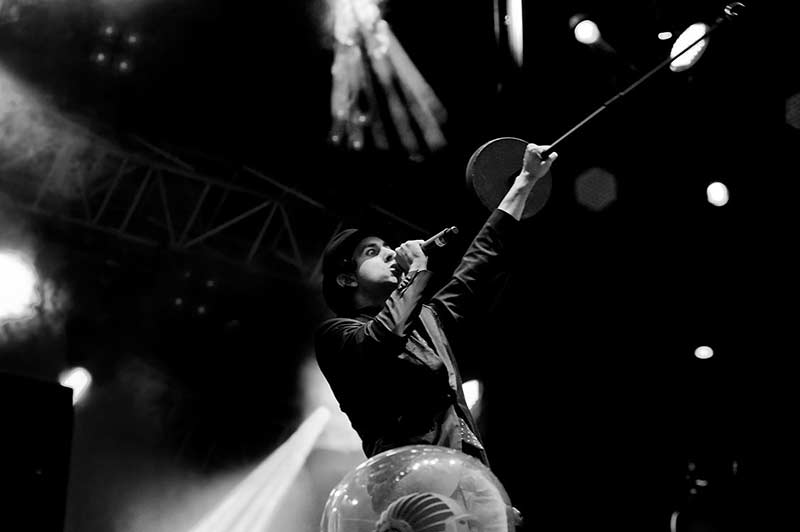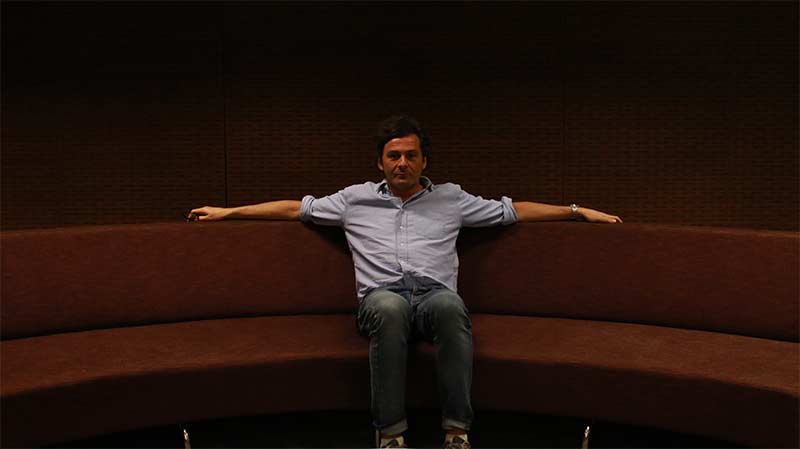Meet Stefano Anselmetti, the entrepreneurial man that built famous bands like Maxïmo Park, Two Door Cinema Club and more big names from scratch.
Behind every successful man is a supportive woman, and behind every successful band, is a manager with far-sighted visions. Stefano Anselmetti, Founder of London-based agency, Prolifica Management has groomed and nurtured big bands including Maxïmo Park, InHeaven and Two Door Cinema Club (TDCC) that just made their long awaited grand return on our shores.
Two years are seemingly long in this music generation which evolves at lightning speed, but Two Door Cinema Club is hard to forget. Wondering how it is like doing business in the music industry, we grabbed a quick chat with Stefano to find out more about the man behind the scenes.

What are the primary areas that managers focus on in the first phase of the partnership?
Definitely the music. We pick bands that are at the early stages of their career when they only have one or two couple of songs and start developing them such as their writing skills and musicianship. Sometimes when you are lucky, you get members that don’t need that much help with developing skills.
I look for the ones that are already high potential – as I’m relatively lazy so I would rather they do the work themselves (laughs). Making sure they can perform live on stage is the next priority to start developing a fan base for the artiste through live shows, music, engaging and creative social media interactions.
So usually it starts from live shows?
As a management company, we focus on developing live performances because that’s where you get your real fans.
Wouldn’t it be tougher if you’re picking bands based on quality but not necessarily as commercial?
The biggest misconception is that people expect that we can deliver everything for any artiste. But a lot depends on the artistes and there is a big variable of music industry connection the music has with the audience and fanbase, and that is a big variable no one can really predict. The trick is being able to select the right artiste and band.

Why do you choose to focus on such bands?
It is tougher – maybe initially. But their fan base is much more real than a transient one. So even though there is no big commercial artiste, to me it is more rewarding artistically to work with an artiste that can perform to big audiences over the world even though they have no massive hits.
In your experience, what are some of the biggest misconceptions of an Artiste Manager’s role?
The biggest misconception is that people expect that we can deliver everything for any artiste. But it depends on the artistes and there is a big variable of music industry connection the music has with the audience and fanbase, and that is a big variable no one can really predict. The trick is being able to select the right artiste and band.
As you work very closely with the band, how do you handle the band’s challenges?
The band has been together for 10 years, even before we engaged them. They were young when they first started, and well, they still are and like everyone else they go through phases. They were 16, 17 and they were always together – on tour bus, in studios, and all claustrophobic environments! When they grew up, they realised they needed to settle down as individuals and have the opportunity to grow on their own instead of being piece of a quartet.
I would say it’s important to be aware of any impending challenges, measure it and take in consideration of the personality of everyone. The more creative a human is, the more complicated he can get, and you have to be in tune with that fact and allow it – the trio are very creative in their own ways, so they have very different personalities.
It took a while to build the brand, so did the break affect TDCC’s fan base?
That’s the reason why it is important to build a loyal fan base: people are excited and happy to have them back with new record, and now we are selling more tickets for live shows than we ever were before.
Sometimes people need a break, artistes tend to get strained out under work pressure of releasing melodies and never getting away because you are always afraid of losing your fans base or momentum. But the thing is when you’re away, you come back with a record that is significant and valuable.
What is your greatest take away from working with TDCC?
Interesting question.. Maybe it’s the fact that you need to give people their space at their own pace to be creative.
Other than Prolifica Management Agency, are there any other projects we can look forward to?
I’ve started working for a sports agency which looks after footballers. The philosophy there again is similar to what we do with artistes. Rather than treating them as money-making machines, we help to train and nurture long, successful careers. They are young players and sometimes they get mismanaged, mishandled, and are generally poorly advised in their careers. You see, you can be First Division footballer and not a Premier footballer but still, have a long successful career and make money from what you love doing.
They are young kids and the issue of mental health is a concern. For example, the 16 and 17 year-old kids who are playing for the Arsenal youth team who do not make the first team – they have a big sense of rejection and failure, which not are more than often not managed well.
A lot of kids start trying football since 6 years old and they dedicate around 15 years until one point that they realise they are not as great to be the biggest player in the world. So it’s our philosophy that during these situations, we can still help in guiding them in going towards other directions, or maybe even music (laughs).
So what inspired you to start this project?
It’s more of a romantic story. The guy who founded the sports agency was a good friend of mine who passed away in August. Just before he passed away, we had a chat that maybe we should work together on this, so I decided I would try to fulfil his wish.
With so many projects ongoing, where do you find the time to rest?
I tend to delegate a lot more to other people. As you grow old, you have about 10 or 15 more years where you can still be active and dynamic, so make good use of the years anyway – even if you need to sacrifice.
My daughters are now studying at University and my Wife is a Director of an art gallery. It’s all about managing the time that you are together and do what works out for you.
Related Articles





